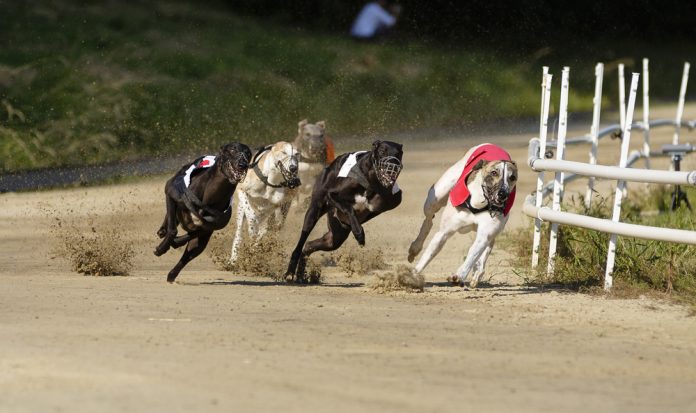The Greyhound Board of Great Britain (GBGB) has reaffirmed its commitment to animal welfare, reporting on the further success of the Greyhound Commitment.
Launched in 2018 by the regulator of British licensed greyhound racing as a ‘blueprint for welfare’ the programme drives integrity standards within the sport.
Despite fears of lockdown having a detrimental impact on track injuries due to so many weeks away from the track, after the sport was initially suspended in March 2020, the year’s data shows a decrease in the number of greyhounds sustaining injuries at GBGB-licensed tracks.
Whilst there were fewer runs as a result of COVID, the track injury rate is still lower at 1.12% compared to 1.21% in 2019, and the track fatality rate remains consistent with last year at 0.06%; reducing this continues to be a priority for the entire sport going forward.
Mark Bird, Managing Director of GBGB, explained: “With the March 2020 Lockdown in particular, we saw the detrimental impact that the loss of greyhound racing – albeit temporarily – had on livelihoods across our sport. And the consequences of that on our greyhounds could have been tragic.
“But with the emergency financial support we were able to introduce and the efforts of owners, trainers, vets, stadia and our own Stipendiary Stewards, we were able to prevent the very difficult scenarios which we may have otherwise faced. The success of these measures is borne out in the figures released today and I would like to thank everyone across our sport who acted to maintain the highest standards of care and attention for our greyhounds throughout.”
Today’s figures also show significant improvements in the number of greyhounds being homed on retirement. 95% of greyhounds leaving the sport were successfully rehomed in 2020 – up from 90% in 2019.
Importantly, the figures show that the number of greyhounds put to sleep because of the high cost of veterinary treatment has fallen significantly; from 123 in 2019 to 24 in 2020. For the second year running, no greyhounds were put to sleep because no home could be found for them.
“Greyhounds deserve the highest level of care not only during their racing career but also in their retirement that follows,” added Animal Welfare Minister, Lord Goldsmith.
“I welcome the full transparency shown by the Greyhound Board of Great Britain in publishing its annual data on greyhound injuries and retirement and it is encouraging to see that progress continues despite the restrictions last year with the percentage of injuries decreasing and more dogs being rehomed.
“These statistics clearly point to improved outcomes for greyhounds following retirement from racing and the Government will continue to work with the sport and governing body to build on this positive progress.”

























